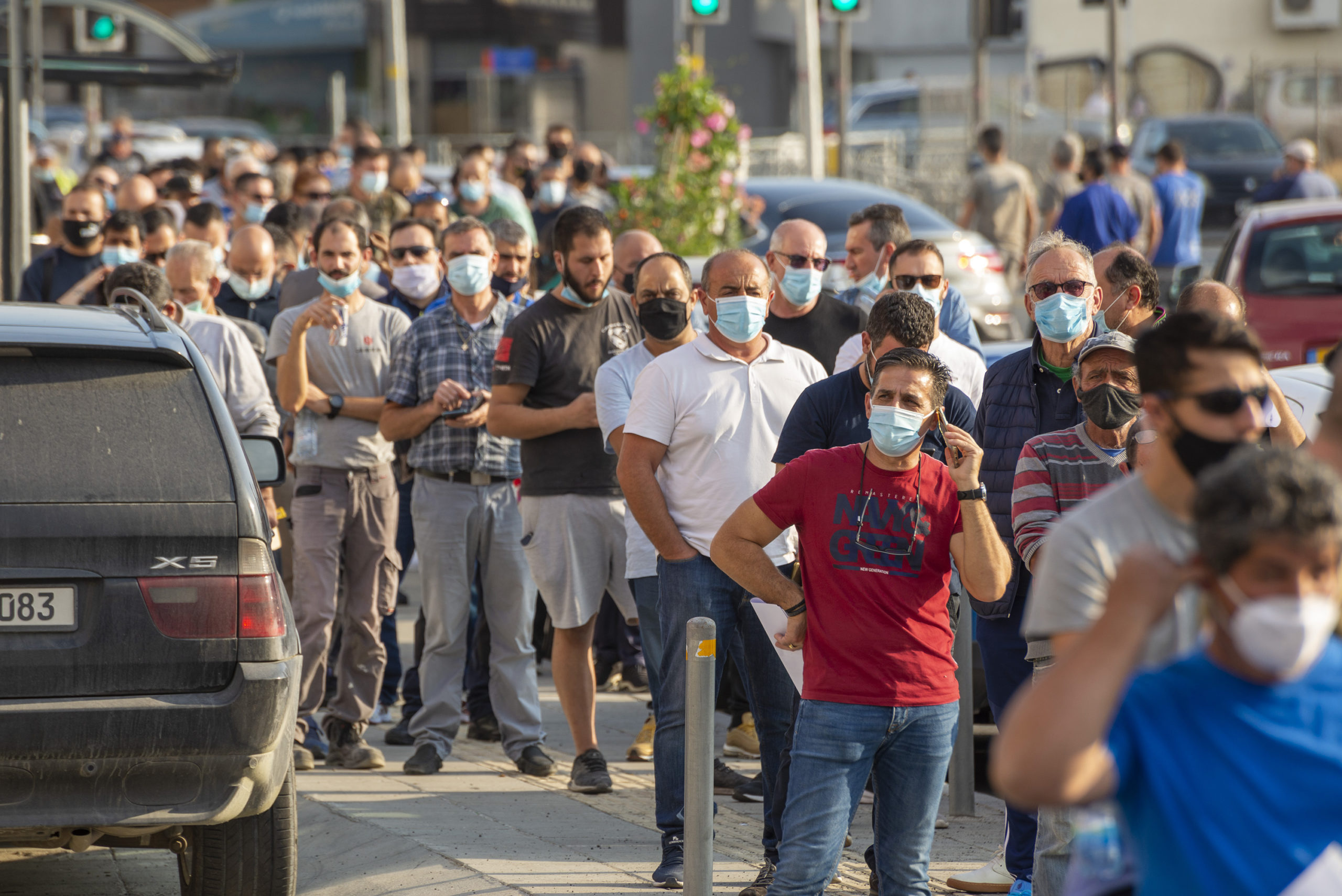The government’s decision to keep a ban on shopping malls and churches from opening to the public over the festive season has come under fire by clerics and businesses.
And COVID-19 intervention objectors have found an unexpected ally in scientist, Dr Elpidoforos Soreriades, who claims that government measures are over the top and should be withdrawn.
Since implementing a shutdown on malls, hospitality, and churches to stem the spread of the Coronavirus on 11 December, the government has come under pressure from the Holy Synod to allow the faithful to attend services.
Shop owners in malls urged the government to allow them to open so they can recoup heavy losses in the run-up to Christmas.
The government decision to keep churches closed over the Christmas period is “provocative and irresponsible”, according to the head of University of Nicosia’s theology department Christos Economou.
The church has found support from an unlikely source, a man of science who argues coronavirus would have spread no matter what measures were adopted.
In an open letter to President Nicos Anastasiades, Soteriades, Assistant Professor at United Arab Emirates University, urged the government to withdraw measures, arguing that the rise in COVID-19 cases amongst Cypriots is attributable, “as elsewhere in the world, to the fact that winter is setting in”.
He described the government’s policies as punitive and lacking scientific justification.
“I am saddened by the intimidating and punitive policy of the government, which is financially exterminating the people with exorbitant fines for trivial and unrelated reasons.
“I am concerned over the government continuing to impose unscientific measures, which are hurting our fellow citizens to an unimaginable degree.”
He argued that people are on the brink of financial destruction, as they see their income go up in smoke, still having to pay off loans, while unemployment and poverty are on the rise.
“Many of our compatriots will not be able to afford to put food on the Christmas table this year,” said Soteriades.
He argued that measures were excessive as “the government’s initial fears of high mortality rates have proven wrong”.
“The number of deaths recorded in Cyprus this year, in 2020, is less than those recorded last year and compared to the last three years!”
Soteriades called on authorities to focus on taking targeted measures at public and private hospitals, care homes, and other residential institutions, by testing people weekly with rapid antigen tests.
Data doesn’t lie
Virologist Peter Karayiannis from the University of Nicosia Medical School defended the role of government advisors, of which he is one.
“We don’t suggest measures on our own accord. Epidemiologists analyse significant scientific data obtained from concrete studies and suggest measures accordingly,” said Karayiannis.
“We are constantly updating measures in response to what we observe concerning the virus each day.
“Philosophising on the measures is pointless as every decision we take is based on scientific data, like in the rest of the world.”
Karayiannis said the Health Ministry COVID-19 team is not convinced the situation in Cyprus allows for rolling back lockdown measures on shopping malls, hospitality, or churches.
He said measures were taken primarily to protect the health system which is under enormous strain with more than 120 patients needing care while others are on a ventilator.
“A philosophical discussion over measures would not answer the question of who would take care of patients, had cases reached 2,000 a day and many more deaths.
“Without interventions, and looking at the trend, that is the figures we would have been reporting today.”
“Nobody has the authority to say when someone can die.”
Karayiannis said that authorities are aware of people having difficulties in making ends meet, and that is where the government should step in.
“It is well known that businesses and people are having a hard time, especially when it comes to paying rents.
“This is an area where the government could do more. I don’t see why people should be expected to pay full rent, during this time while the owners are not willing to take on part of the damage.”
He is convinced that despite the hardships brought on by coronavirus, people understand the need for measures and are complying.
“When I pass through mass testing points, I see most people waiting to get tested are of a younger generation. That goes to prove that people understand the implications and want to protect the elderly.
Addressing Soteriades’ argument that authorities should be concentrating on high-risk facilities such as hospitals and nursing homes, Karayiannis said: “That’s what we are doing”.
“If one looks at the fact sheets on rapid tests, they will see a large number conducted at care homes, hospitals, and the National Guard.
Karayiannis said that the authorities are in a race against time to keep cases as low as possible until vaccinations begin.
“Because we do not know if vaccines prevent transmission, we have to stick to protective measures. The more people get vaccinated the better chance we have to stop the spread sooner.”










